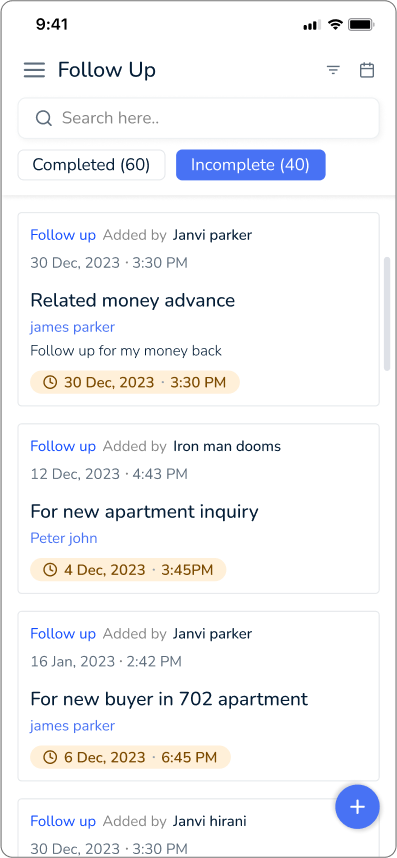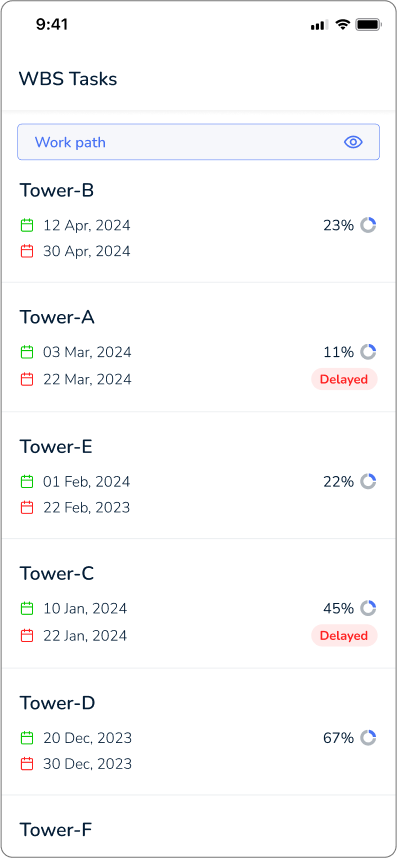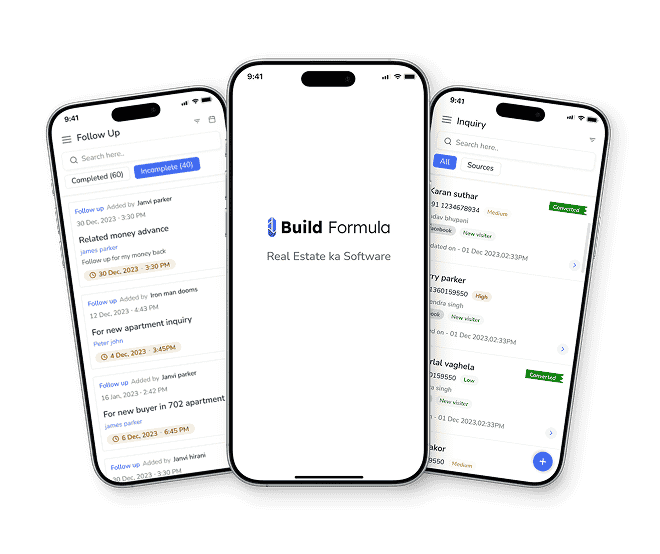
Big data isn’t just a fancy tech term anymore. It’s fast becoming the smartest advisor in the world of real estate. Whether it’s understanding buyer preferences, tracking construction progress, or analyzing market trends, vast amounts of data gathered from various sources can offer unmatched clarity and control. Think of it as having a super-organized assistant who works 24/7 and finds patterns in the chaos, patterns that help real estate professionals make faster, smarter, and more profitable decisions.
In 2025, builders and developers who leverage real estate data analytics are outpacing those who still depend solely on gut feeling or past experiences. From pricing decisions to marketing strategies and project planning, data insights are helping real estate firms gain a competitive edge.
Role of Big Data in Real Estate Industry
Gone are the days when builders had to rely only on word-of-mouth and instinct. Today, big data is doing the heavy lifting. From knowing what homebuyers are searching for to predicting emerging property hotspots, data analysis is reshaping how projects are launched, marketed, and sold.
Big data pulls information from every possible source, including online property searches, social media, government records, weather updates, traffic reports, and converts it into useful insights. Instead of guessing, developers can now confidently decide where to build, what to build, and how to price it.
Where Do Real Estate Companies Get Data From?
But the question remains, from which sources do real estate businesses collect the database? Here are the most common sources of data:
- Broker Logs & Inquiry Sheets: Phone calls and inquiry updates show what locations and configurations are trending.
- Sales Executive Feedback: Notes from site visits can reveal recurring issues, like small kitchens or poor ventilation.
- WhatsApp Chats & Call Logs: Common questions from buyers point to what matters most—like carpet area or EMI options.
- Website & Property Portals: Searches on sites like MagicBricks and 99acres reveal broader demand patterns.
- Ad Campaigns: Performance of Facebook and Google ads helps you understand which offers or visuals are clicking with buyers.
Using CRM Software for Customer Insights
Understanding your buyers is at the heart of selling better, and that’s where real estate CRM software plays a big role. It captures and organizes real-time data from site visits, calls, WhatsApp messages, and even social media interactions.
- You get clarity on what kind of properties people are looking for – tenements, apartments, or penthouses.
- It shows you which marketing channels are performing. Whether your real estate leads are coming from Facebook, brokers, or property portals.
- With advanced analytics, you can segment buyers based on income, preferences, or buying timelines, and send personalized messages that actually convert.
This isn’t just lead management—it’s about turning scattered inquiries into solid deals with the power of data analytics.


Using ERP for Construction Cost Estimation
Managing budgets and costs is a major challenge in the real estate sector. That’s where ERP (Enterprise Resource Planning) comes in. It acts as the control center for your operations. A good ERP gives you complete visibility into your material purchases, vendor performance, and actual vs. planned spending.
- If waterproofing is costing 20% more than estimated, ERP alerts you instantly.
- It tracks cement, steel, and tile stock, helping you plan procurement smartly and avoid delays.
- Vendor performance data helps you identify reliable and cost-effective suppliers.
- ERP also offers cash flow forecasting, so you know what’s coming in and going out, helping you plan payments and avoid liquidity crunches.

it compares current timelines with past projects to offer realistic completion forecasts.
From Scattered Notes to Smart Decisions: Use Big Data Effectively
In today’s real estate market, big data analytics is more than just numbers. It’s a powerful tool to grow your business. Whether you’re building homes in Tier-1 cities or planning a new project in a growing town, using data the right way can help you make smarter and more informed decisions.
Here’s how to do it step by step:
Step 1: Bring All Your Data Together
Real estate teams deal with a lot of scattered information, including broker notes, walk-in inquiries, WhatsApp chats, and online leads from sites like MagicBricks or 99acres. The first step is to collect and organize all of it in one place.
Use a system (CRM, Excel, or a custom tracker) to:
- Group leads by source (brokers, ads, referrals)
- Tag them by project, location, or buyer type
- Keep records clean and updated
This helps you easily search, compare, and understand where your leads are coming from and what they want.
Step 2: Spotting Trends and Patterns
Once your data is structured, real intelligence begins. Analyze it across various layers:
- Customer preferences – Are more buyers asking for balconies, work-from-home spaces, or EV charging points?
- Location trends – Which micro-markets are seeing rising interest? Are people shifting their preferences from city centers to peripheral areas?
- Sales funnel insights – Do you lose most leads after the first site visit? That could signal a poor on-site experience or a pricing mismatch.
- Broker performance – Which agents bring serious buyers, and which bring junk leads?
You can also check public data like new road projects, metro plans, or RERA filings to get a bigger picture of local trends.
Step 3: Plan Better with Data
Use these insights to fine-tune your strategy:
- Design homes that match real demand, like smaller units or more balconies
- Adjust your prices based on what’s working in that area
- Focus marketing on locations or channels that bring serious buyers
- Time your launches around high-demand seasons like Diwali or year-end
Data doesn’t just help you sell more. It helps you sell smarter, faster, and with less waste.
The Future of Real Estate Is Data-Driven
The real estate world is changing fast, and those who adapt will lead. By using real estate CRM software and ERP tools, builders can streamline operations, control costs, and understand buyers better. But beyond tools, it’s the mindset shift toward data analytics that truly makes a difference. If you’re looking to future-proof your real estate business, it’s time to say goodbye to guesswork and hello to data-driven decision-making.
Build Formula is a powerful CRM+ERP software built specifically for Indian real estate developers. It helps you track leads, manage costs, analyze buyer behavior, and use real-time data to make smarter business decisions. Let your data do the heavy lifting. With Build Formula, you don’t just build properties, you build with insight, efficiency, and confidence.







